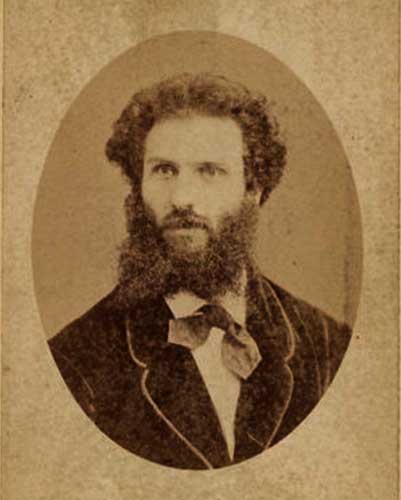Home - In and around
VINCENZO RAGUSA SCULPTOR PATRIOT
Vincenzo Ragusa (Palermo, 8 July 1841 - Palermo, 13 March 1927) of Partanna a suburb of Palermo, a pupil of Salvatore Lo Forte was an Italian sculptor, founder of the Art Institute of Palermo, today named after him and his wife Otama Kiyohara. He participated in the Expedition of the Thousand.
Between 1876 and 1882 he introduced in Japan the technologies of bronze casting and other European techniques of sculpture with armor and modeling, playing a significant role in the development of modern Japanese sculptural arts. He was part of the first body of teachers and the group of consultants chosen by the Meiji government for the foundation of the Technical School of Fine Arts (Kobu Bijutsu Gakko) in Tokyo. His activity of cultural intermediation between Italy and Japan was also remarkable, carried out together with his wife Otama Kiyohara.
His sculptures are in several museums and important collections in Italy and Japan.
At 19, in 1860, after the landing of the Thousand in Marsala, he took part in the Expedition of the Thousand. On 1 October, under the orders of Nino Bixio and together with other artists, including Francesco Lojacono, he took part in the Battle of Volturno.
In 1875 he received the diploma of the Accademia di Brera ad honorem.
wiki source
Between 1876 and 1882 he introduced in Japan the technologies of bronze casting and other European techniques of sculpture with armor and modeling, playing a significant role in the development of modern Japanese sculptural arts. He was part of the first body of teachers and the group of consultants chosen by the Meiji government for the foundation of the Technical School of Fine Arts (Kobu Bijutsu Gakko) in Tokyo. His activity of cultural intermediation between Italy and Japan was also remarkable, carried out together with his wife Otama Kiyohara.
His sculptures are in several museums and important collections in Italy and Japan.
At 19, in 1860, after the landing of the Thousand in Marsala, he took part in the Expedition of the Thousand. On 1 October, under the orders of Nino Bixio and together with other artists, including Francesco Lojacono, he took part in the Battle of Volturno.
In 1875 he received the diploma of the Accademia di Brera ad honorem.
wiki source



